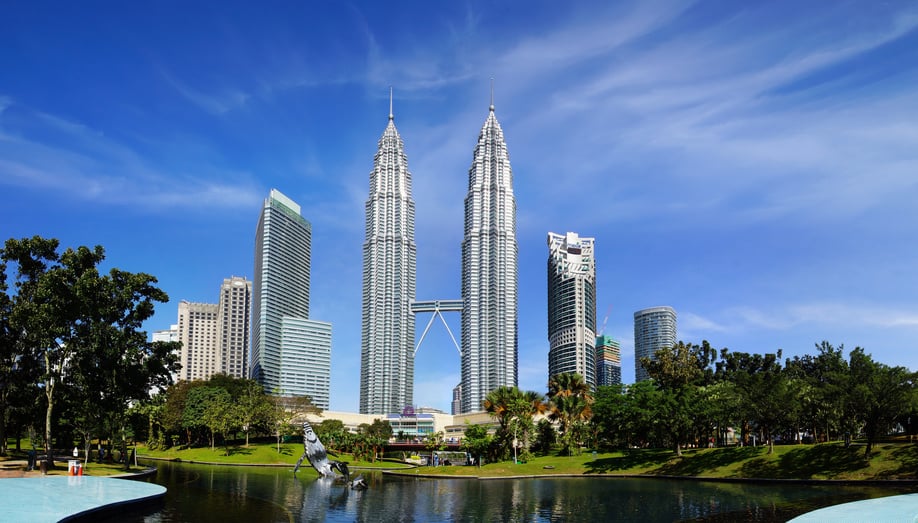The Prevention and Control of Infectious Diseases (Measures within the Infected Local Areas) Regulations 2020 (“Regulations”) lapsed on 31 March 2020. In place of the lapsed regulations, the Malaysian Government has announced and issued the new Prevention and Control of Infectious Diseases (Measures within the Infected Local Areas) (No. 2) Regulations 2020 (“Regulations (No. 2)”) to continue to combat the outbreak of COVID-19.
The Regulations (No. 2) are effective from 1 April to 14 April 2020 (“Control Period”). It mirrors its predecessor substantially but reduces and limits the categories of essential services under the regime and provides some clarity in relation to inclusion of logistics services supporting the listed essential services.
1. Reduced and updated list of Essential Services
The Regulations (No. 2) include a reduced and updated list of ten Essential Services, as follows:
(a) food;
(b) water;
(c) energy;
(d) communication and internet;
(e) security and defence;
(f) solid waste and public cleansing management and sewerage;
(g) healthcare and medical including dietary supplement;
(h) banking and finance;
(i) e-commerce;
(j) logistic confined to the provision of essential services.*
*New services that were not included in the Regulations dated 18 March 2020.
The Regulations (No. 2) revised the expressions and the list of Essential Services to include new reference to “internet” and “dietary supplement”.
It also includes a new category of Essential Services, i.e. “logistic confined to the provision of essential services”. This clarifies the ambiguity of the original Regulations which did not include the same category and provides that the logistic services in respect of the provision of other Essential Services are allowed under the Regulations (No. 2).
2. Conditions for movement
Further, the Regulations (No. 2) now regulates the conditions for movement which have been imposed by various authorities in Malaysia. A person moving from one place to another place within Malaysia shall comply with the following conditions depending on the purposes of his or her movements:
(a) if the purpose of the movement is to purchase food, daily necessities, medicine or dietary supplement, his movement shall only be limited to a place within a radius of not more than ten kilometres from his residence, or to a place nearest to his residence and shall not be accompanied by any other person unless it is reasonably necessary for him to be accompanied;
(b) if the purpose of the movement is to seek healthcare or medical services, his movement shall only be to a place within a radius of not more than ten kilometres from his residence, or to a place nearest to his residence and he may be accompanied by any other person as may be reasonably necessary;
(c) if the purpose is to perform any official duty, he shall produce an authorisation letter from his employer if required by an authorised officer;
(d) if the purpose is to perform his duty in relation to any Essential Services, he shall produce an authorisation letter from his employer if required by an authorised officer.
In this regard, the employers providing Essential Services are required to provide an authorisation letter to the employees who are working during the Control Period.
3. Movement to carry out works on infrastructure
The Regulations (No. 2) now also addresses the need to carry out works on any infrastructure related to any Essential Services which, if not carried out, would affect the provision of the Essential Services or would affect the safety and the stability of the infrastructure. A person is allowed to move from one place to another place to carry out such work and shall provide the necessary proof if requested by an authorised officer.
4. Direction of the Director General of Health
The Director General of Health is now empowered under the Regulations (No. 2) to issue any direction in any manner, whether generally or specifically to any person or group of persons to take such measures for the purpose of preventing and controlling any infectious diseases.
In other words, any direction from the Director General of Health would be deemed to have legal effect even if it is issued to a specific entity and should not be disregarded.
5. Liability
The offence section under the Regulations (No. 2) now includes commission of an offence by a partnership.
A director, compliance officer, partner, manager, secretary or other similar officer and personnel responsible for managing or assisting in the management of the affairs of an offending body corporate or an offending partnership may be charged jointly or severally with the body corporate or the partnership and if the body corporate or the partnership is found guilty of the offence, such person shall be deemed to be guilty of the offence and shall be liable to the same punishment or penalty as an individual unless he/she can prove that:
(a) the offence was committed without his/her knowledge, consent or connivance; and
(b) he/she took all reasonable precautions and had exercised due diligence to prevent the commission of the offence.
It is also pertinent to note that the offence section under Regulations (No. 2) now specifically includes compliance officers. As such, a compliance officer is expected to observe and to cause the body corporate to comply with the Regulations (No. 2).
6. Conclusion
It can be seen in the new Regulations (No. 2) that the Malaysian Government now further regulates the movement of the public and is likely to implement stricter enforcement of the same. The regulatory bodies will likely be issuing further guidance in light of the new Regulations (No. 2). Businesses should closely monitor these developments.



